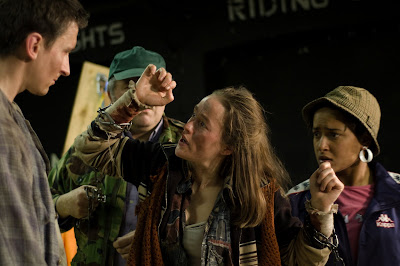In response, an alliance of nine UK Christian organisations has issued the following statement:
“We are deeply disappointed, though not surprised, by the decision of Parliament to accept the Government’s proposals to increase stakes and prizes for category C and D gaming machines. The Government had promised that no such increase would be made until a further gambling prevalence study had been published and has reneged on this promise. We do not know what effects this legislation will have on the levels of problem gambling or on the lives of those already addicted to slot machines, but we have always urged the Government to act with caution.
“We will continue to campaign for the protection of those vulnerable to the harmful effects of gambling and to call on the government to put people before profits. We particularly call on the Government
· to prohibit children from gambling and to research the effects of allowing them to do so. Britain remains the only developed country that allows children to
 play on fruit machines, and the substantial increase in prizes for children will add another hazard that should be evaluated;
play on fruit machines, and the substantial increase in prizes for children will add another hazard that should be evaluated; · only to increase future stake and prize values in line with inflation, at no more than 3 yearly intervals;
· and to undertake research into the impact of these changes, with a promise to reverse the decision if this research demonstrates a likely increase in problem gambling.”
The Methodist Church, The Church of England, The Salvation Army, The Church of Scotland, The Baptist Union of Great Britain, The United Reformed Church, Quaker Action on Alcohol and Drugs, the Evangelical Alliance and Care.
Toby Scott, Director of Communications and Campaigns for the Methodist Church added, “Although we are disappointed with this decision, we are extremely grateful for the level of support we have received and to all those who have added their voices to this campaign.”
Source: Methodist News Service 21/04/2009












+-+Olive+(4).jpg)